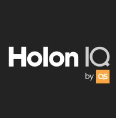Purpose
The Higher Education Digital Capability (HEDC) Framework is a learner-focused, practical and flexible approach to mapping and measuring digital capability in Higher Education institutions across the learner lifecycle. Universities and HE institutions globally use the framework to identify strengths, prioritise areas of focus and support their digital transformation strategies.
